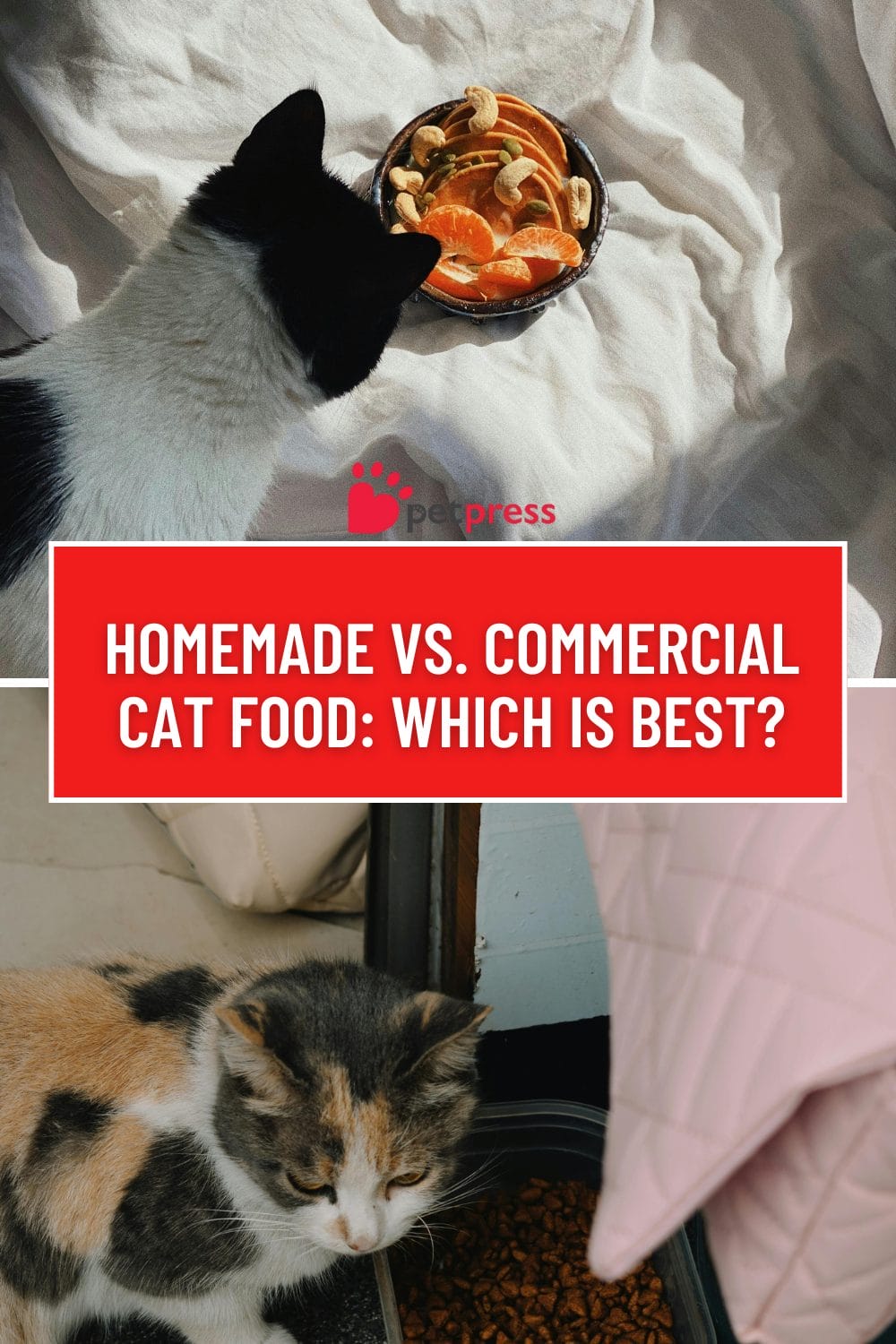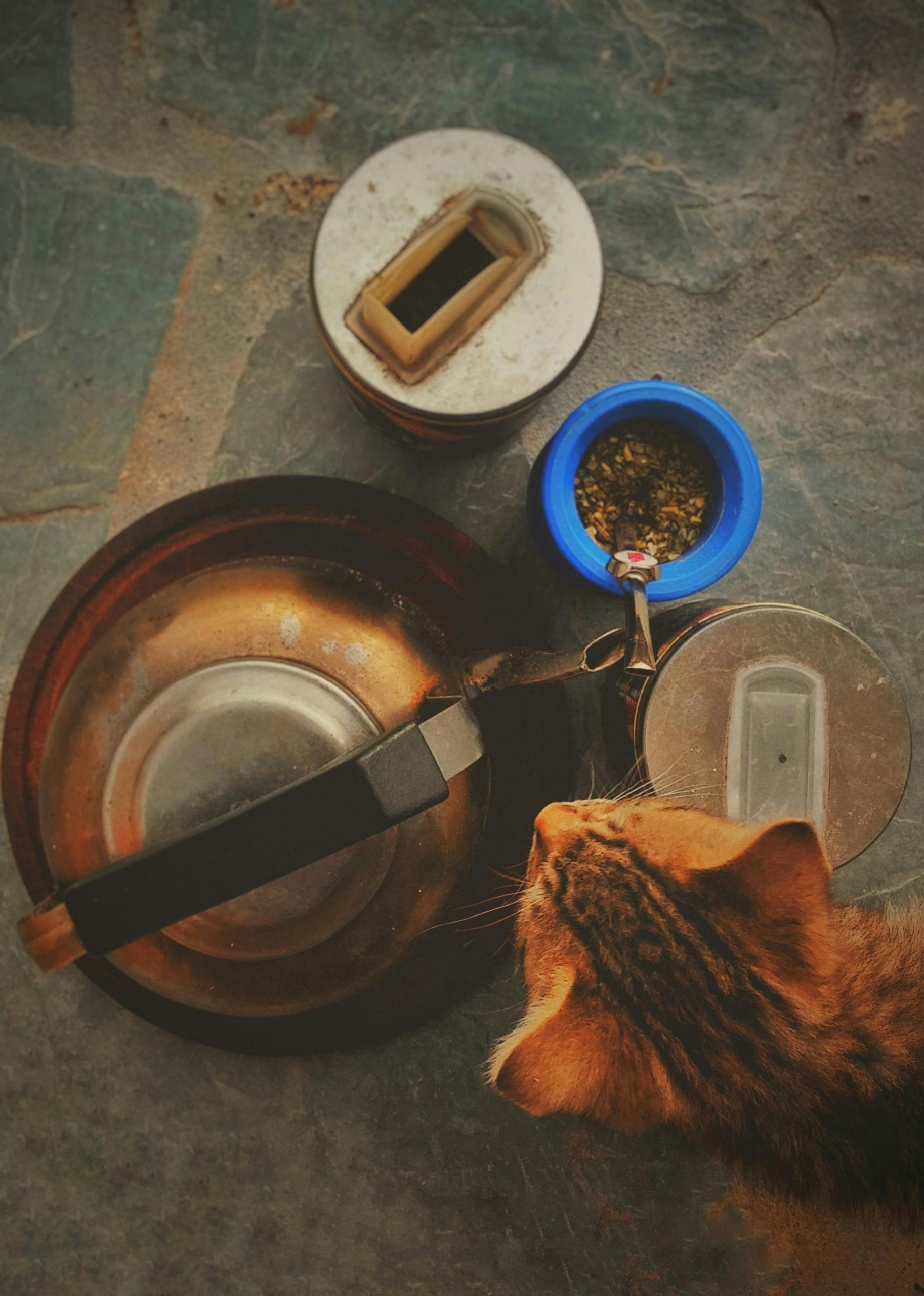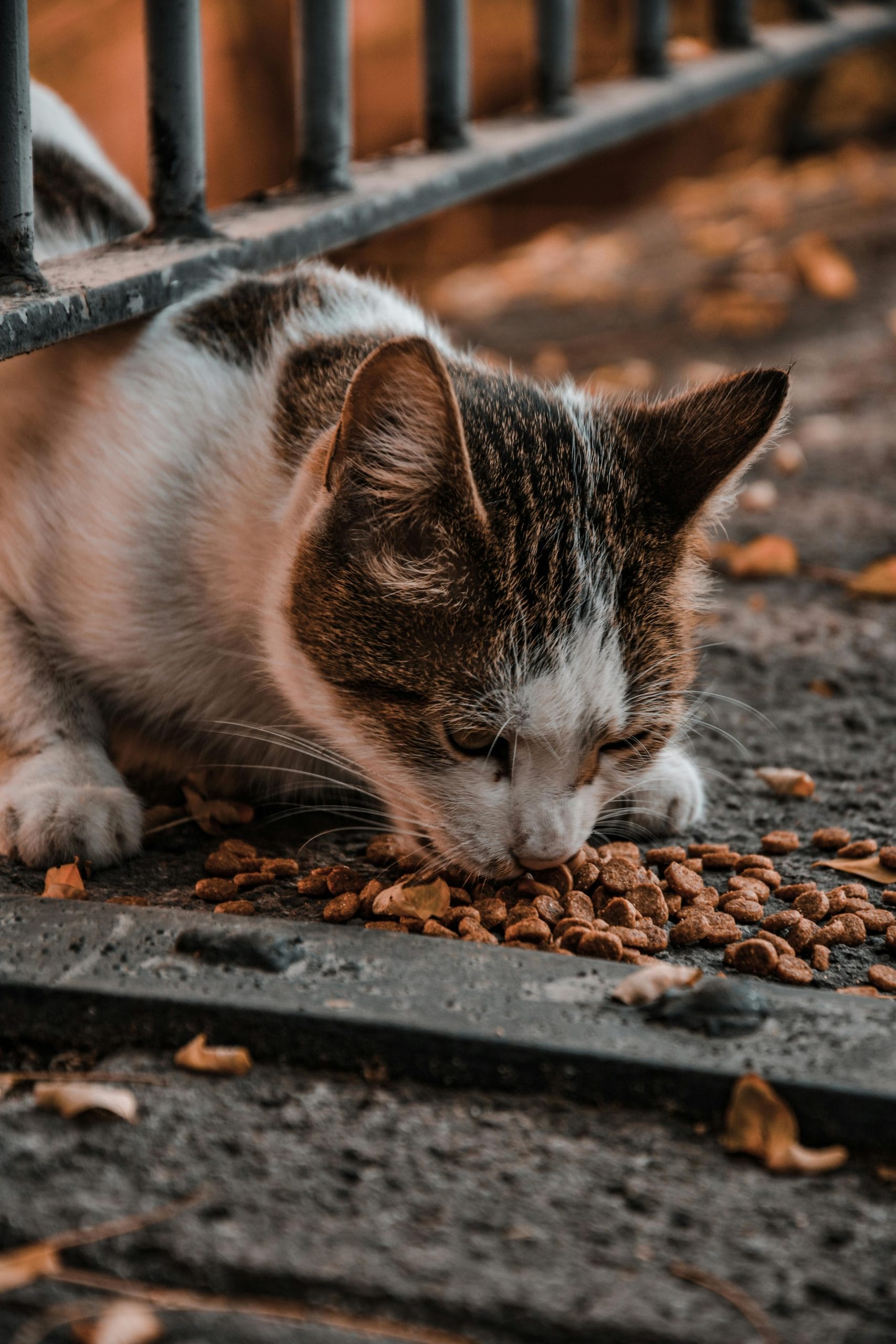
Homemade vs. Commercial Cat Food what to choose? Well, choosing the right food for your cat is crucial for their overall health and well-being.
With the growing popularity of homemade cat food recipes, many pet owners are considering preparing meals for their feline friends at home.
However, commercial cat food options also offer convenience and a balanced diet.
In this post, we will delve into the topic of homemade vs. commercial cat food, examining the history, significance, types of foods, storage methods, and more.
History and Significance
In the past, cats were primarily fed homemade diets consisting of scraps and leftovers from household meals.
However, with advancements in pet nutrition research, commercial cat food options emerged in the mid-20th century.
These commercial diets aim to provide balanced nutrition and convenience to pet owners.
Over time, the pet food industry expanded, offering various options tailored to meet specific dietary needs, including dry kibble, wet canned food, and specialised formulas for different health conditions.
Homemade Cat Food

Homemade cat food refers to meals prepared at home using fresh ingredients.
This approach allows pet owners to have full control over the quality and variety of ingredients in their cat’s diet.
Homemade cat food can include a combination of lean meats, such as chicken or turkey, cooked vegetables, and grains.
Some cat owners also choose to feed their feline companions a raw diet, consisting of uncooked meat and bones.
However, it is essential to consult with a veterinarian or a veterinary nutritionist to ensure a balanced and nutritionally complete homemade diet for your cat.
Commercial Cat Food
Commercial cat food is readily available in pet stores and supermarkets.
It comes in various forms, including dry kibble, wet canned food, semi-moist options, and freeze-dried or dehydrated meals.
Commercial cat food undergoes rigorous testing and quality control to meet specific nutritional standards set by regulatory bodies.
These diets formulate a balanced mix of proteins, fats, carbohydrates, vitamins, and minerals essential for a cat’s optimal health.
Difference between Homemade vs. Commercial Cat Food

To better understand the differences between homemade and commercial cat food, let’s examine them in the following table:
| Aspect | Homemade Cat Food | Commercial Cat Food |
| Quality control | Variable | Strict |
| Nutritional balance | Requires planning | Pre-formulated |
| Ingredient variety | Flexible | Limited options |
| Convenience | Time-consuming | Ready-to-serve |
| Cost | Varies | Affordable options |
| Special dietary needs | Customizable | Specialized formulas |
| Veterinary guidance | Essential | Not always required |
Storing Homemade and Commercial Cat Food
Proper storage is crucial to maintain the freshness and quality of both homemade and commercial cat food. Here are some guidelines to store cat food.
Homemade Cat Food
Store homemade cat food in airtight containers and refrigerate promptly. It is recommended to prepare small portions that can be consumed within two to three days.
Freeze any excess portions in sealed bags or containers for longer-term storage.
Commercial Cat Food
Follow the storage instructions provided on the packaging.
Unopened cans or bags of commercial cat food should be stored in a cool, dry place. Once opened, refrigerate any unused portion and use it within a specified time frame.
Conclusion
Choosing between homemade and commercial cat food depends on various factors, including your cat’s dietary needs, your lifestyle, and the time you can dedicate to meal preparation.
Homemade cat food offers control over ingredients and customization, but it requires careful planning and veterinary guidance.
On the other hand, commercial cat food provides convenience, nutritional balance, and affordable options.
Remember, consulting with a veterinarian is essential to ensure your cat’s diet meets their specific nutritional requirements.
FAQs
The answer depends on various factors. Homemade cat food allows you to have control over the ingredients and quality, ensuring a personalized diet for your cat. However, it requires careful planning and consultation with a veterinarian to ensure a balanced nutrition profile. Commercial cat food, on the other hand, is formulated to meet the nutritional needs of cats and is convenient. It is essential to choose a reputable brand that uses high-quality ingredients.
It is possible to provide a balanced diet through homemade cat food, but it requires proper knowledge and supervision. Cats have specific nutritional requirements, including essential amino acids, vitamins, and minerals, which need to be carefully considered. Consulting with a veterinarian or a veterinary nutritionist is crucial to developing a homemade cat food recipe that meets these requirements.
Yes, there are potential risks associated with homemade cat food. Preparing an unbalanced diet can lead to nutrient deficiencies or excesses, causing health issues. It can be challenging to achieve the right balance of nutrients without professional guidance. Additionally, food safety is crucial to prevent contamination or bacterial growth. Raw diets, in particular, carry the risk of bacterial infections. Proper hygiene and food handling practices are essential when preparing homemade cat food.
Reputable commercial cat food brands adhere to stringent quality and safety standards, making them generally safe for cats. Look for brands that follow industry regulations and have undergone rigorous testing. However, recalls and quality control issues can still occur, so it is essential to stay informed and choose trusted brands. Reading labels and understanding the ingredients can help you make informed decisions about the commercial cat food you choose.
The cost of homemade cat food can vary depending on the ingredients used and their availability. While some homemade recipes may be cost-effective, others can be more expensive due to the inclusion of high-quality ingredients. Commercial cat food, on the other hand, offers a range of options at various price points. It is important to consider the overall nutritional value, quality, and convenience along with the cost when making a decision.
- Dogs Pooping Blood: A 2026 Guide for Concerned Pet Parents - February 23, 2026
- How to Celebrate a Dog’s First Birthday on a Budget: 2026 Guide - February 18, 2026
- Best Shampoo for Sensitive Skin Dog Grooming: 2026 Guide - February 12, 2026


GIPHY App Key not set. Please check settings